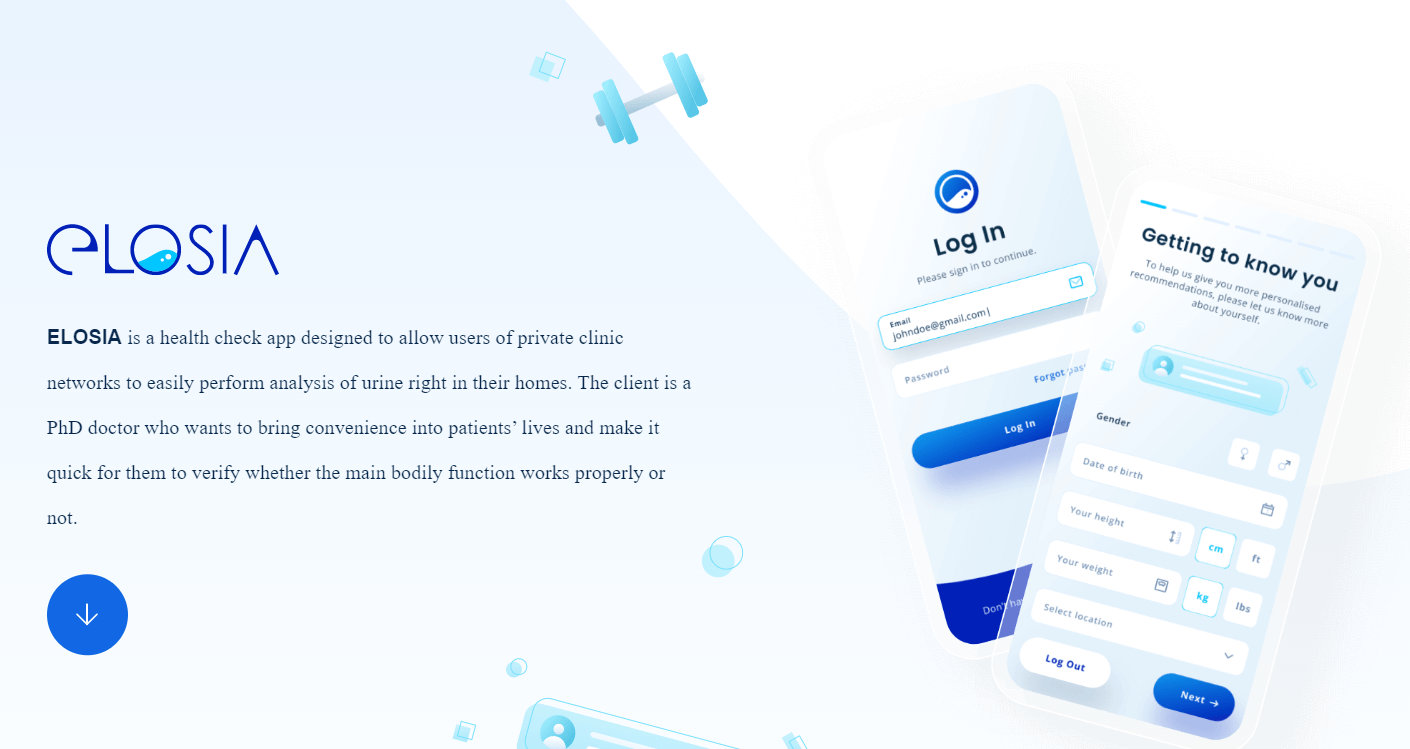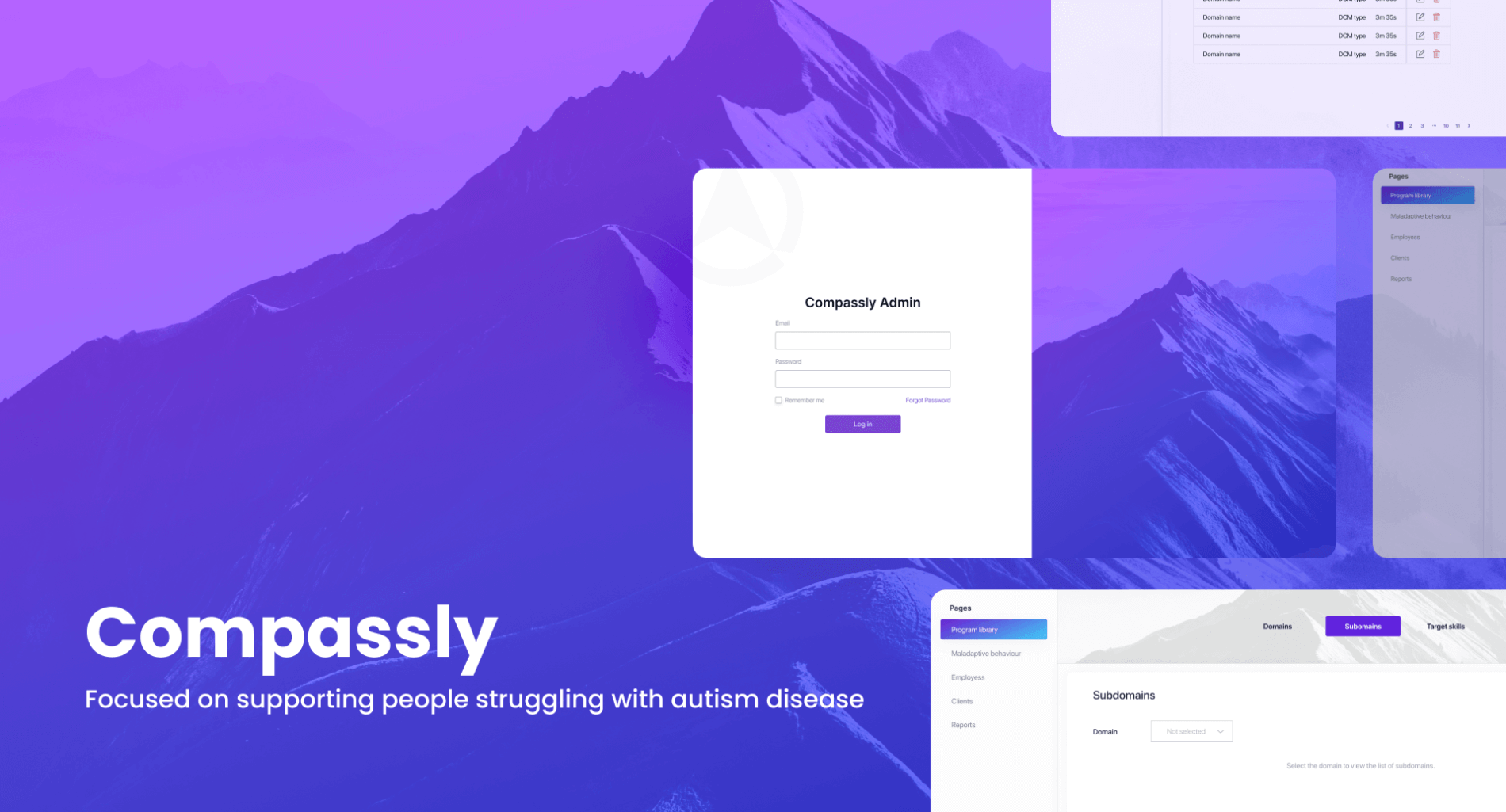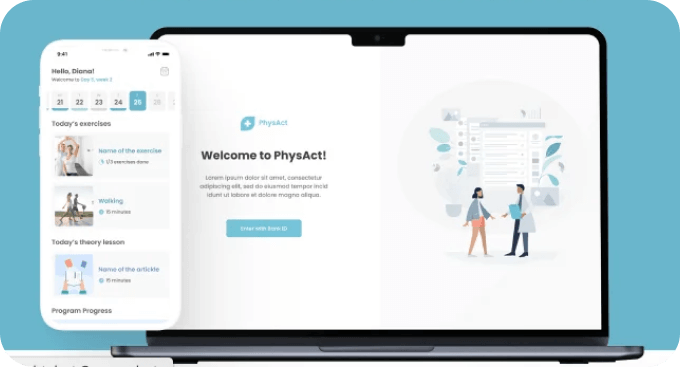Testing and quality assurance in healthcare app development are paramount, as inattention to QA issues can lead to undetected bugs, security breaches, incorrect diagnoses, counterproductive treatments, and overall low end product quality. A mistake in medicine is extremely costly, as it can damage the patient’s health and your reputation as a trusted provider.
 $240.9 billion
$240.9 billion
The global digital health market size was estimated at $240.9 billion in 2023.
 $225 billion
$225 billion
The global telemedicine market size is expected to reach $225 billion by 2030.
 $1498.29 billion
$1498.29 billion
The global IoMT market is expected to reach over $1498.29 billion by 2032.
Quality Assurance in Healthcare: 6 Essential Considerations
Security and Compliance Testing
There’s a wide range of regulations and policies healthcare applications must comply with to guarantee personal and financial data protection. They include HIPAA, HL7, PCI SSC, and more. Healthcare apps are generally connected with storing and using large amounts of sensitive information – personal ID numbers, insurance, social security, etc. This means that even minor app vulnerabilities can result in massive data leaks, leading to losses of customers, money, and credibility. However, leaks can be avoided with the help of vulnerability assessment, security code review, user data encryption, and automated software testing.
UI/UX Testing
In the healthcare industry, many users are senior citizens who may have difficulties adjusting to new technologies. That’s why the design of healthcare apps should be intuitive and user-friendly. UI/UX testing will assist in determining the possible issues the users may encounter when using the app.
The testing involves two stages: static and dynamic healthcare application testing phases. As the name suggests, static testing implies reviewing the non-dynamic app design. During this phase, QA specialists check whether the app design fits user requirements and business logic. During the dynamic stage, the specialists can see how the app design deals with different requests and runs in dynamic conditions.

Integration Testing
Although the main actors in the healthcare industry are providers (hospitals, doctors, nurses, labs) and receivers (patients), there are also insurance companies, solution vendors, and regulatory authorities. These entities may operate on different software, but they should all be able to receive and store the needed data. This calls for multiple API integrations.
Compatibility and Interoperability Testing
Since patients and healthcare facilities may use various devices, operational systems, browsers, etc., it’s essential to check that the software operates properly and smoothly across the platforms. Many apps are connected with IoMT devices, so efficient data transfer must be secured. Compatibility testing helps avoid system errors, data inconsistencies, and connection problems. Healthcare apps and the linked devices should cooperate seamlessly and ensure accurate data exchange.

Performance Testing
Performance testing is essential to identify glitches that disrupt the app’s operation. It’s also an excellent way to test other productivity requirements, such as load, stress, endurance, and volume. For example, you can check how different variables, like device type, connection quality, location, or the number of concurrent users, affect the app’s speed. Creating a user load to see how the application will handle high simultaneous user activity will help determine its limits and possible ways to improve this.
Regression Testing
You must run regression after every round of iterations, be it updates, novel features, or fixes. This will ensure that the bug-fixing process doesn’t change the initial code or expose other issues.
Improving Code Quality for Healthcare Solutions
-
Test plan strategies
QA testing in the healthcare domain is more complex than the standard procedure because of the demanding requirements. Testing requirements should serve the needs and experiences of all users, including healthcare providers, patients, insurance companies, etc. QA specialists must ensure that these different test sets meet all critical requirements:
- Performance testing. Check the software’s performance, scalability, architecture, and tuning.
- Vulnerability assessment and penetration testing. Assess the app’s security level and resistance to hacking.
- UX testing. See if the UX design is intuitive and user-friendly.
- Localization testing. Verify that the software is capable enough to be used in a specific culture or region.
- Compliance testing. Check if the software complies with regulatory requirements and policies like HIPAA, HL7, etc.
Automated testing is a software technique that uses specialized tools to run a suite of test cases automatically. It is often used in test cases for the above-mentioned testing. This helps deliver faster and more accurate results than manual testing methods.
-
Setting security standards from the start
Setting the security standards from the start will prevent gaps, hacking, and security issues.
- Test your app in accordance with all necessary healthcare regulations to guarantee compliance.
- Perform end-to-end testing to keep sensitive information secure within the software.
- Devote time and resources to training all testers on healthcare standards.
-
Leverage a comprehensive testing framework
Establish strict guidelines and rules for test cases to avoid possible mistakes and mismanagement of time and resources. Automated testing allows the QA specialists to handle the data volume across various platforms, operating systems, and environments in a time-saving manner.
- Functional testing. Ensure that the software transmits the information securely and correctly in all situations.
- Data-driven testing. Check that the app handles patient data accurately and safely, even with high user volume.
- Authentication verification. Ensure the authentication process runs smoothly and the security features work properly in all user scenarios.
- Repetitive testing. Check that all the processes run smoothly within the software, regardless of the number of test cases executed.
- Multi-platform testing. Ensure the application performs seamlessly and bug-free across multiple devices, platforms, and browsers.
-
Documenting
Documenting every step of the healthcare software testing makes the process easier and more systematic. A unified reporting system keeps the data well-structured and in one place, saving time and money.
- Introduce the system at the start of your project.
- Determine the rules, who documents what, and at what stages.
- Develop standardized templates for each type of documentation to be consistent and unified.
- Make documentation an integral part of your QA engineers’ day-to-day operations.
-
Coordination with the development team
Proper testing can only be achieved through close cooperation between the QA specialists and the development team. Testing isn’t an isolated process; it can become much easier and more efficient if team communication is established. In this way, every specialist works as a part of the team to enhance teamwork, product quality, and delivery.
Looking for QA specialists to improve the code quality of your healthcare app?
Get in touchChallenges in Healthcare App Testing
-
1 Security testing
QA engineers must guarantee that data isn’t exposed or compromised in any way during the testing, which brings certain challenges:
- The complexity of the software. Healthcare software is generally complex and has several levels of functionality. The interactions between components, such as electronic health records and patient portals, can be hard to predict and replicate, making it difficult to test for security vulnerabilities.
- Limited access to live patient data. It would be better to test the software in real-world scenarios. However, numerous regulatory requirements protect all patients’ sensitive data, making it challenging to access the data and limiting the process.
- Integration with other systems. Healthcare software is often integrated with hospital management systems and medical devices. This integration can cause new security flaws and require additional medical device software testing to guarantee the entire system’s security.
Unexpected user scenarios. Healthcare apps are used by various groups with unique needs and use cases: patients, healthcare providers, and administrative staff. That’s why predicting all user scenarios during the design and development stages is impossible. Nevertheless, it’s essential to make the testing comprehensive and include a variety of user scenarios.
-
2 Hardware integration testing
- Access to hardware devices. QA specialists often have limited or no access to medical devices that must be connected to other devices for testing. This obstacle complicates the medical device software testing process and leads to incomplete and unreliable results.
- Limited interoperability. Some healthcare devices have limited interoperability, which makes it hard to test the software’s ability to interact with them.
-
3 Interoperability testing
- Complex systems. Healthcare software systems are usually complex and dependent on multiple components, medical devices, and third-party systems working together seamlessly. Interoperability testing requires QA specialists to have in-depth knowledge of how the systems interact.
- Different technologies. Healthcare apps are built using numerous languages, technologies, and platforms, which requires QA engineers to possess diverse technical knowledge and experience.
- Large volume of sensitive data. Healthcare applications need to be able to handle large volumes of data and user activity. This means specialists deal with extensive personal data during testing and must ensure its security.
-
4 Audio and video quality testing (for telehealth apps)
- Variable network conditions. Telehealth apps require a stable Internet connection for proper work, which depends on many factors, such as device capabilities, network infrastructure, location, etc. These conditions vary greatly, so QA specialists should test the applications in different contexts, imitating real-life scenarios to guarantee a stable audio and video connection.
- Hardware integration. Telehealth apps are generally designed to integrate with hardware and medical devices, such as special headsets and tablets, microphones, cameras, speakers, and headphones. The challenge here is to test the software’s audio and video quality on the relevant devices.
- Limited testing resources. QA engineers may not have access to all the necessary hardware or testing equipment, which results in limited accuracy and scope of audio and video quality testing.
-
5 Regulatory compliance
During healthcare software development, developers must follow various regulatory requirements, guidelines, and policies. These vary across countries; for example, HIPAA applies in the USA, the PIPEDA Act in Canada, GDPR in the EU, and OAIC in Australia. Failure to comply with the regulations can cost healthcare software development companies millions in penalties. In 2022, French healthcare software provider Dedalus Biologie was fined 1.5 million euros after a massive health data leak.
Hire a HIPAA compliance consultant to improve data security of your healthcare app
Book a callHow Can Interexy Help?
Interexy is a mobile & web development company and a leading healthcare developer. We provide healthcare application development services for private clinics and healthcare organizations seeking more secure, efficient, and stable solutions. Our team also offers telemedicine, pharma, and fitness & wellness app development services.
At Interexy, you can recruit a skilled QA team with unique expertise who will ensure your healthcare application meets the highest quality standards. Our specialists are experienced in complying with key healthcare regulations and policies, such as HIPAA, HL7, XDS/XDS-I, etc.

FAQs
-
What key aspects should I bear in mind when testing healthcare applications?
During healthcare QA testing, it’s essential to test the software’s security and compliance, UI/UX design, and performance. It’s also necessary to check the app’s integration capabilities, compatibility, and interoperability and perform regression testing.
-
Why test healthcare software?
Healthcare software testing is crucial for its success. It guarantees patients’ sensitive data security, healthcare regulatory compliance, system interoperability, and efficient operation. It also enhances the app’s performance, scalability, user experience, and usability.
-
What does the cost of QA in healthcare depend on?
Generally, QA testing costs about 40% of the total app development cost. However, outsourcing and applying automated testing can significantly lower costs and speed up the process. The main factors affecting the cost of healthcare software testing include the app’s complexity, the hiring model and team size, interoperability with other software, and testing tools.







